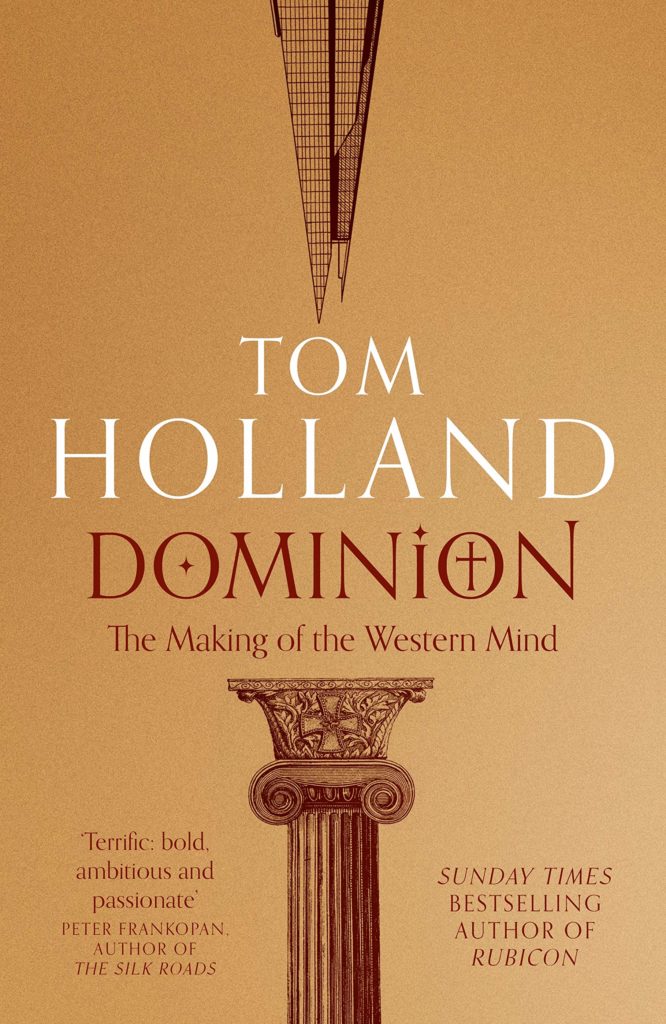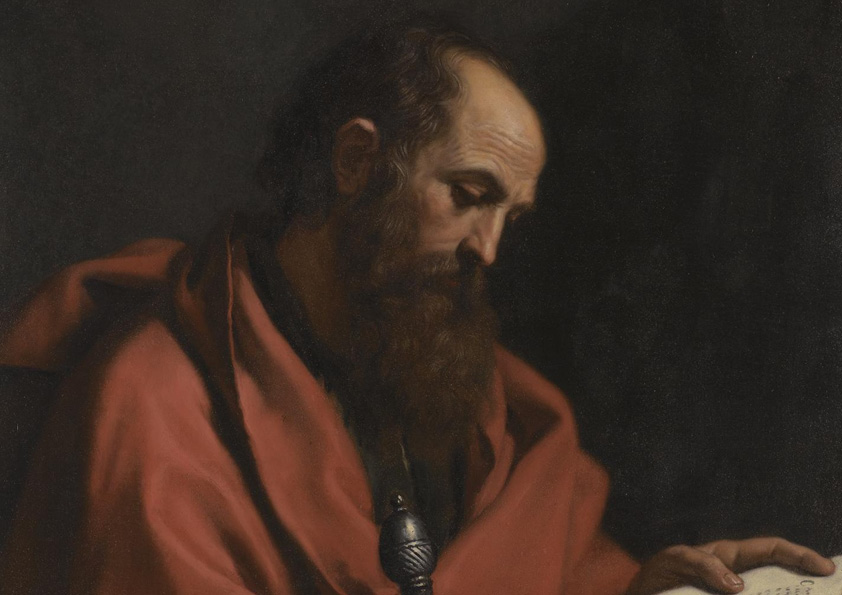Historian and author Tom Holland considers the influence of St Paul of the formation of Christianity, the influences on his philosophy and the legacy he left behind
Subscribe to All About History now for amazing savings!
How do you think Paul achieved such personal authority in the early church?

[Image source: Oxford Literary Festival]
He was evidently a remarkable man, possessed of extraordinary charisma, persuasiveness and a capacity for relentless travel. By the end of his life, it has been estimated, he had travelled some ten thousand miles. He did this in the cause of a remarkable vision: both the literal vision of Christ which he tells us himself that he had been given, and the vision as well that followed from it, of a new covenent between the God of Israel and all the peoples of the world. This, as events were to prove, was an understanding of Christ with a greater potential to win converts than that of any other Christian missionary. Paul, though, was not merely a visionary. He understood the value of strategy too. Like any good general, he knew better than to neglect his rear. Daily, along the roads built with such effort and proficiency by Caesar’s engineers, missives were borne in the service of the Roman state. Paul too, in the service of his own Lord, dispatched a steady stream of letters. Sufficiently tutored in the arts of rhetoric to deny that he had ever learnt them, he was a brilliant, expressive, highly emotional correspondent. One letter might be marked by his tears; another with expostulations of rage; another with heartfelt declarations of love for its recipients; many with all three. At times of particular stress, Paul might even seize the pen from the scribe he had been dictating to, and start scratching with it himself, his writing large and bold. To read his correspondence was not just to track the pattern of his thoughts, but almost to hear his voice. That it has survived in the volume that it has done is witness to just how much authority he came to have.
How influenced was Paul by Greek philosophy?
To the degree, I suspect, that most vaguely educated people today can be influenced by Marxism without actually having read Marx. I do not think Paul had a deep knowledge of Greek history, but its impact is evident in his letters even so. One marker of it in particular has been massively influential on Christian history. Writing to the churches of Rome, Paul freely acknowledged that Jews were not alone in having a sense of right and wrong. Other peoples too, however dimly, possessed one. How had they come by it? Since God had never given them a Law, it could only have derived “from nature”. This, for a Jew, was an astonishing acknowledgement to make. The concept of natural law had no place in Torah. Yet Paul, in struggling to define the law that he believed, in the wake of the crucifixion and resurrection, to be written on the heart of all who acknowledged Christ as Lord, did not hesitate to adapt the teachings of the Greeks. The word he used for it – ‘syneidesis‘ – clearly signalled which philosophers in particular he had in mind. Paul, at the heart of his gospel, was enshrining the Stoic concept of conscience.

You say in Dominion that abandoning the cult of the Caesars to become Christian was dangerous, but also a liberation. How do you think Paul won so many converts among gentiles?
I think the answer to that is to be found in the phenomenon of the ‘theosebeis’: ‘God-fearers’. These were Gentiles who were attracted by what Jewish practice and scripture seemed to offer, but shrank from taking the ultimate step. Admiration for Moses, and respect for the God of Israel as “a great king over all the earth” did not necessarily translate into a willingness to go under the knife. Paul, by proclaiming that “the only thing that counts is faith expressing itself through love,” resolved this problem. In his teachings, the claims of the Jews upon the Lord Of All The Earth and those of everyone else, between a God who favoured one people and a God who cared universally for humanity, between Israel and the world, appeared resolved. Paul had not ceased to reckon himself a Jew; but he had come to view the marks of his distinctiveness as a Jew, circumcision and all, as so much “rubbish”. It was belief, not a line of descent, that henceforward was to distinguish the children of Abraham. Gentiles had no less right to the title than the Jews. The fabric of things was rent, a new order of time had come into existence, and all that previously had served to separate people was now, as a consequence, dissolved. “There is neither Jew nor Greek,” as Paul put it in one of his most momentous formulations, “slave nor free, male nor female, for you are all one in Christ Jesus.”
To what extent can today’s Christianity be called Pauline Christianity?
Paul’s letters are like a collection of acorns, from which mighty oaks have grown. They are the most influential pieces of writing to have survived from antiquity, and their influence on Christian history, and the present day character and assumptions of the West, are incalculable. Not just our earliest sources for Christianity, they are also the most influential. If the European philosophical tradition can be characterised as a series of footnotes to Plato, then even more so can Christian theology be characterised as a series of footnotes to Paul. Yet that does not mean he should be regarded as the founder of Christianity. Without Jesus, we would never have heard of Paul. The figure of Christ stands at the heart of Paul’s letters, just he stands at the heart of the later Gospels. That is why Christianity, although it may be Pauline, is not named after Paul.

Dominion: The Making of the Western Mind is launching in paperback from Abacus 6 August 2020 and Tom Holland can be seen at the upcoming Oxford Literary Festival at the Sheldonian Theatre on 5 April 2020. Tickets start at £7. See the Oxford Literary Festival site for more details and the full lineup of historians attending.
Subscribe to
All About History now for amazing savings!



